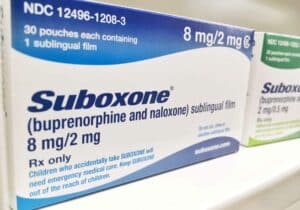Discovering that your daughter is battling mental illness can provoke a whirlwind of emotions. The storm of worry about her well-being and contemplation on how to extend the requisite support engulfs your thoughts. Although you cannot offer a complete cure, your involvement is quintessential in steering her towards a brighter and healthier future.
What is Mental Health?
Mental health is a crucial aspect of your child’s overall well-being, encompassing both their emotional and psychological states. It’s about how they think, handle emotions, and behave. A mental health issue in children might manifest as difficulties in thinking, behavior, social skills, or managing emotions, differing from what’s expected for their age. These challenges can impact how they perform at home, in school, or during social activities.
Children’s mental health, much like their physical health, can fluctuate, improving or deteriorating over time. Just as we guide our children in developing healthy physical habits—like brushing teeth, eating well, and exercising—we can also support their mental wellness.
Mental health concerns are not uncommon among children and teenagers. Recognizing and addressing these issues early, akin to treating a physical ailment like a broken bone, is crucial. However, distinguishing between typical growth-related changes in mood and behavior and signs of more significant mental health issues, such as anxiety or depression, can be challenging. This is because children and teens are constantly growing and evolving. Understanding these nuances is key to providing the right support and intervention.
Recognizing Mental Illness in Your Daughter
Acknowledgment of the prevailing issue is the first stride towards aiding a daughter in a mental health crisis. However, this task is easier said than done. Some mental disorders project glaring symptoms, while others manifest subtly.
You don’t have to be a mental health maven to discern the signs indicating your daughter might be in distress. What is paramount is vigilance towards significant behavioral changes. Actions out of the ordinary such as the following can be indicative of a mental health disorder:
- Drastic mood swings or a change in attitude
- Irregular sleep patterns
- Unusual eating habits
- Unintentional weight gain or loss
- Neglect of personal grooming and hygiene
- Abnormal levels of energy
- Display of anger, aggression, or violence
- Loss of interest in erstwhile enjoyable activities
- Isolation from family and friends
- Problems with focus and concentration
- Frequent absenteeism from school or work without justification
- Decline in performance at school or work
- Frequent complaints of headaches, stomach aches, or other physical discomforts
- Expressions of despair or wishes to disappear
If your daughter exhibits such signs or contends with more severe symptoms like hallucinations or delusions, it’s imperative to have her evaluated by a certified mental health professional.
Supporting Your Daughter through Mental Illness
The stark reality of not being able to alleviate your daughter’s suffering is distressing. Nonetheless, as echoed earlier, your role is pivotal in keeping her safe and linking her to beneficial services that could uplift her life’s quality and essence. Here are four actionable steps towards realizing this:
- Educate Yourself: If your daughter has been diagnosed with a mental disorder, immerse yourself in understanding the condition. If she displays symptoms but lacks a diagnosis, research the potential causes and impacts of these symptoms. The more enlightened you are about her experiences, the better positioned you are to extend significant aid.
- Engage in Conversation: Initiating dialogue surrounding mental health can be intimidating, yet it’s indispensable:
- Express your concerns and unconditional support to your daughter.
- Address the observable symptoms without laying blame.
- Discuss treatment possibilities when appropriate. Prepare for potential denial or anger, and plan for calm reassurances. It’s a process; multiple conversations may be requisite.
- Set and Uphold Healthy Boundaries: While your daughter’s health is a priority, self-care is equally cardinal. Steer clear of enabling behaviors that could exacerbate her mental health condition. Establish clear boundaries, and adhere to them even when faced with adverse reactions.
- Seek Professional Guidance: Engaging a mental health professional can furnish you with insight into your daughter’s condition, advice on boundary-setting, and strategies for encouraging her towards seeking help, even if she’s resistant initially.
Your ability to support your daughter is greatly tethered to your well-being. Procuring professional help ensures you’re mentally fortified to offer the requisite support to your daughter.
Recognizing Signs of a Mental Health Emergency or Suicidal Thoughts
Certain behaviors and statements from an adolescents or teenager may indicate they’re facing an urgent mental health crisis. It’s vital to pay attention if a young person:
- Mentions or makes light of dying or death.
- Starts to give away cherished possessions.
- Bids farewell to friends, even through social media platforms.
- Expresses desires to harm themselves or shares thoughts of wanting to end their life.
- Voices feelings of being a burden or believes others would be better off without them.
- Loses interest in activities they once enjoyed.
- Shows signs of self-injurious behaviors.
These warning signs suggest immediate danger and the need for prompt, supportive intervention to ensure their safety and well-being.
Teen Intensive Outpatient Programs (IOP)
Teen Intensive Outpatient Programs (IOP) are a critical stepping stone on the trajectory towards recovery and balanced mental health for your daughter. IOPs furnish a structured therapy ambiance while permitting the continuation of her daily activities. The Iris Wellness Group’s Teen IOP in Chattanooga, TN is centered around endowing your daughter with coping strategies, resilience training, and community support to traverse through her mental health challenges. It’s a conducive setting where she can foster self-awareness, augment interpersonal skills, and work towards surmounting the hurdles that mental health disorders might present. The amalgam of group, individual, and family therapy sessions ensures a holistic approach to mental health management. Our dedicated cadre of professionals is devoted to providing personalized care that caters to the unique needs of every teen, laying the groundwork for enduring recovery and a promising future.
Discover Mental Health Treatment in Chattanooga, TN
Iris Wellness Group proffers a spectrum of tailored treatment solutions for teens and adults in Chattanooga, Tennessee, grappling with mental health disorders like anxiety, depression, and bipolar disorder. Our center epitomizes a sanctuary where your daughter can access personalized care and comprehensive support vital for her journey towards wellness.
Delve deeper or schedule a free mental health assessment for your daughter on our admissions page, or connect with us at your earliest convenience. Your proactive step today can herald hope and healing for your daughter, lighting the torch that guides her through the shadowed corridors of mental illness, towards a realm of serenity, self-acceptance, and growth.










